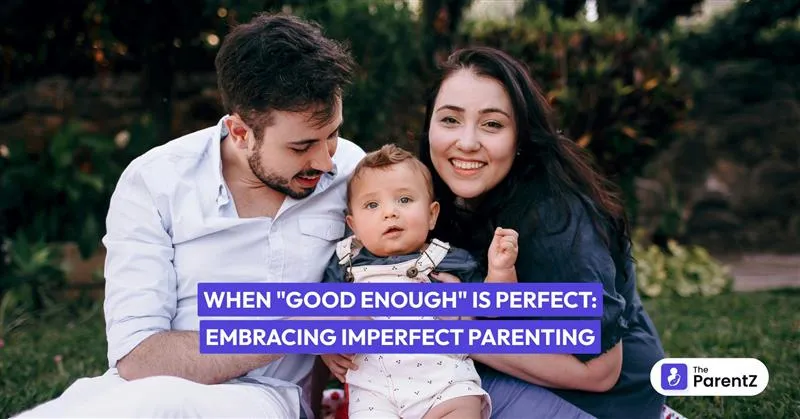You’ve forgotten to pack the extra snack. Again. The laundry’s still piled up, and your toddler just declared war over the wrong-colored sippy cup. You sigh, wondering if you’re the only one winging it in a world that makes parenting look like a polished Pinterest board.
The truth is— amidst the noise of perfect Instagram moms and parenting blogs filled with rules, being good enough is certainly not a failure. Sometimes, it’s the bravest, most loving kind of parenting there is.
Read this article to know when being good enough is the best parenting you can give to your little ones.
The Pursuit of Perfection Doesn’t Mean Failure
There’s a cultural script that says a “good” parent is always patient, always prepared, never forgets the bake sale, and can soothe tantrums with sage-like calm. But that’s fiction. And it’s making real-life parents feel like they’re not doing enough—even when they’re giving their all.
In chasing perfection, you miss what’s real. The giggles in the car after school. The way your child looks at you like you hung the moon—even when you microwaved dinner and lost your cool an hour ago.
The Power of Good Enough
Child psychologist D.W. Winnicott coined the term “good enough mother” in the 1950s. He didn’t mean lazy or indifferent—he meant a parent who is attuned, present, and responsive most of the time, not all of the time.
It matters because children don’t need perfection. They need:
- Attunement – a parent who sees and responds to their needs.
- Repair – someone who can say, “I’m sorry,” and model making amends.
- Consistency – not constant attention, but the kind that says, “You matter. I’m here.”
When you let go of the pressure to be perfect, you give your child room to be imperfect, too. You create space for growth—for both of you.
Your Imperfections Are a Gift
Missed bedtime routines, cereal for dinner, raising your voice during the morning rush—these aren’t disqualifications. They’re part of your humanity. And being human with your child is one of the most powerful things you can do.
You show them that emotions can be messy but manageable, that mistakes aren’t the end—they’re learning moments, and that love is present even when patience runs thin.
Conclusion
In the end, know that you’re not failing. You’re evolving. You’re doing the sacred, messy, quiet work of raising humans—while still being one yourself.
If you’re worrying about being a good parent, chances are… you already are one.





Be the first one to comment on this story.